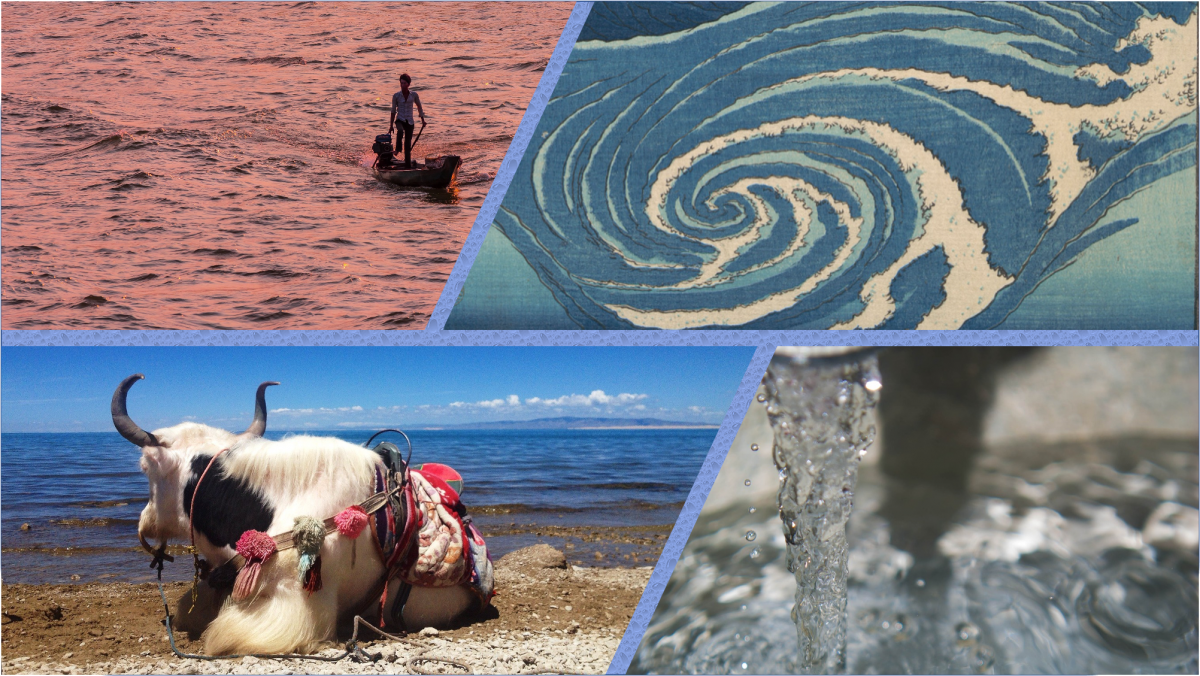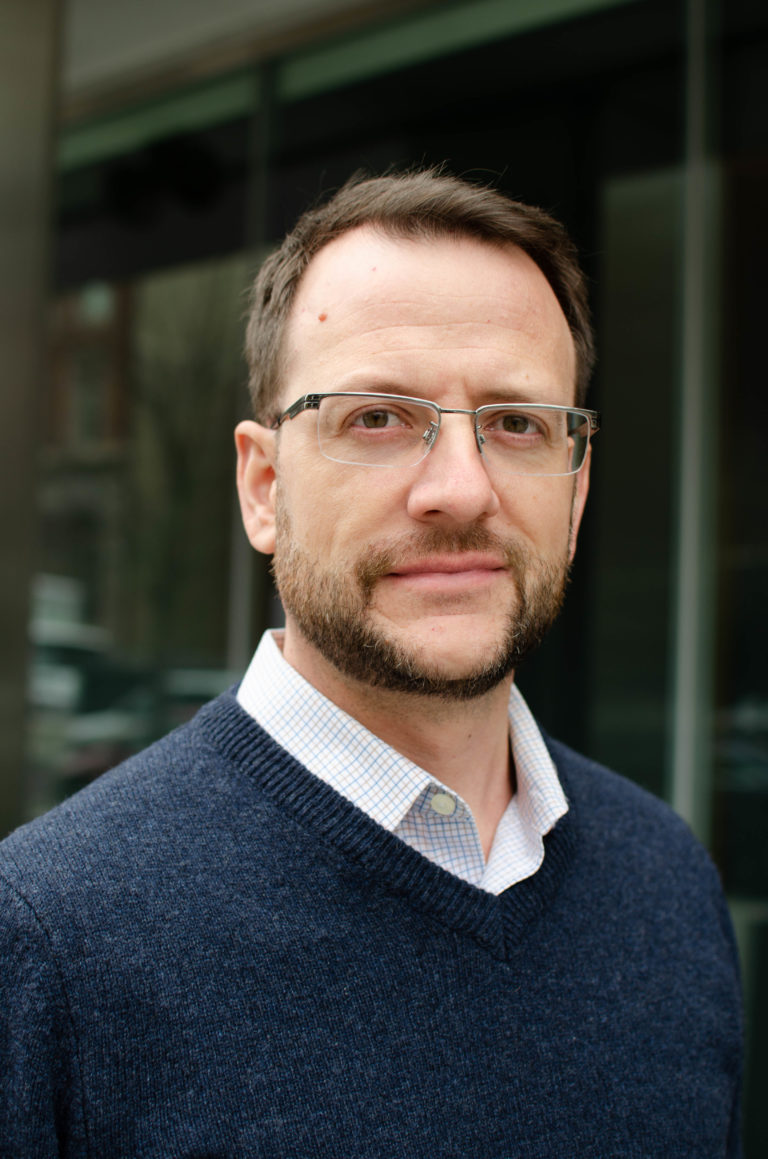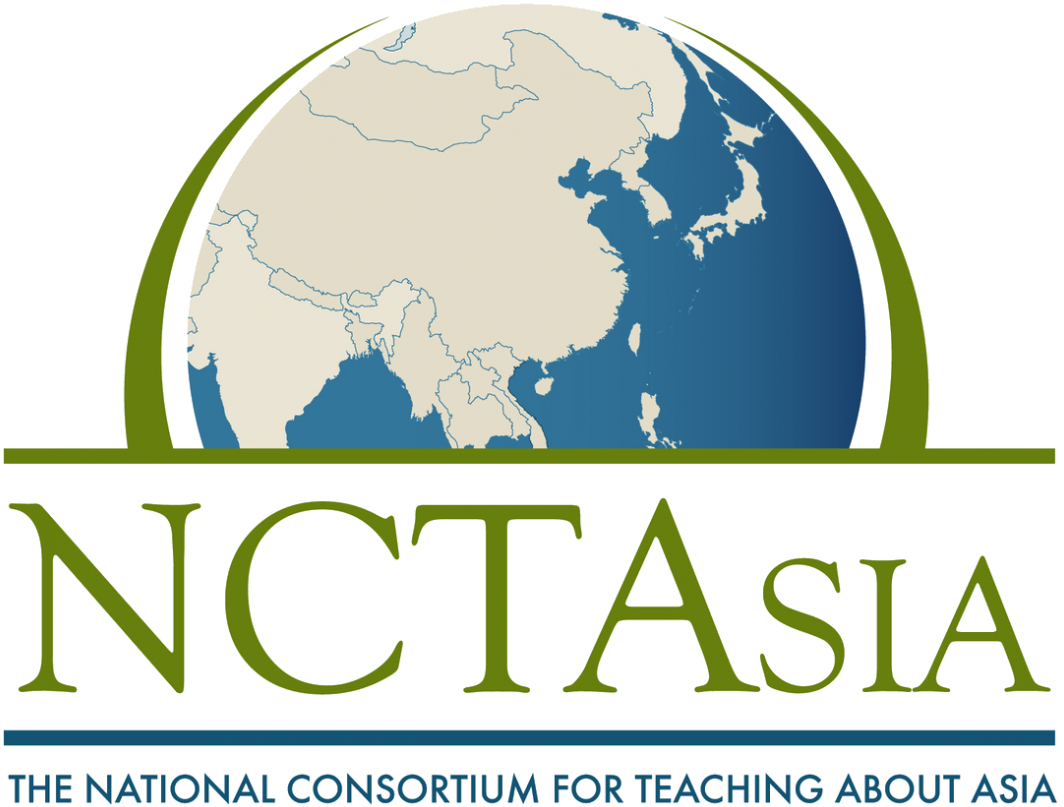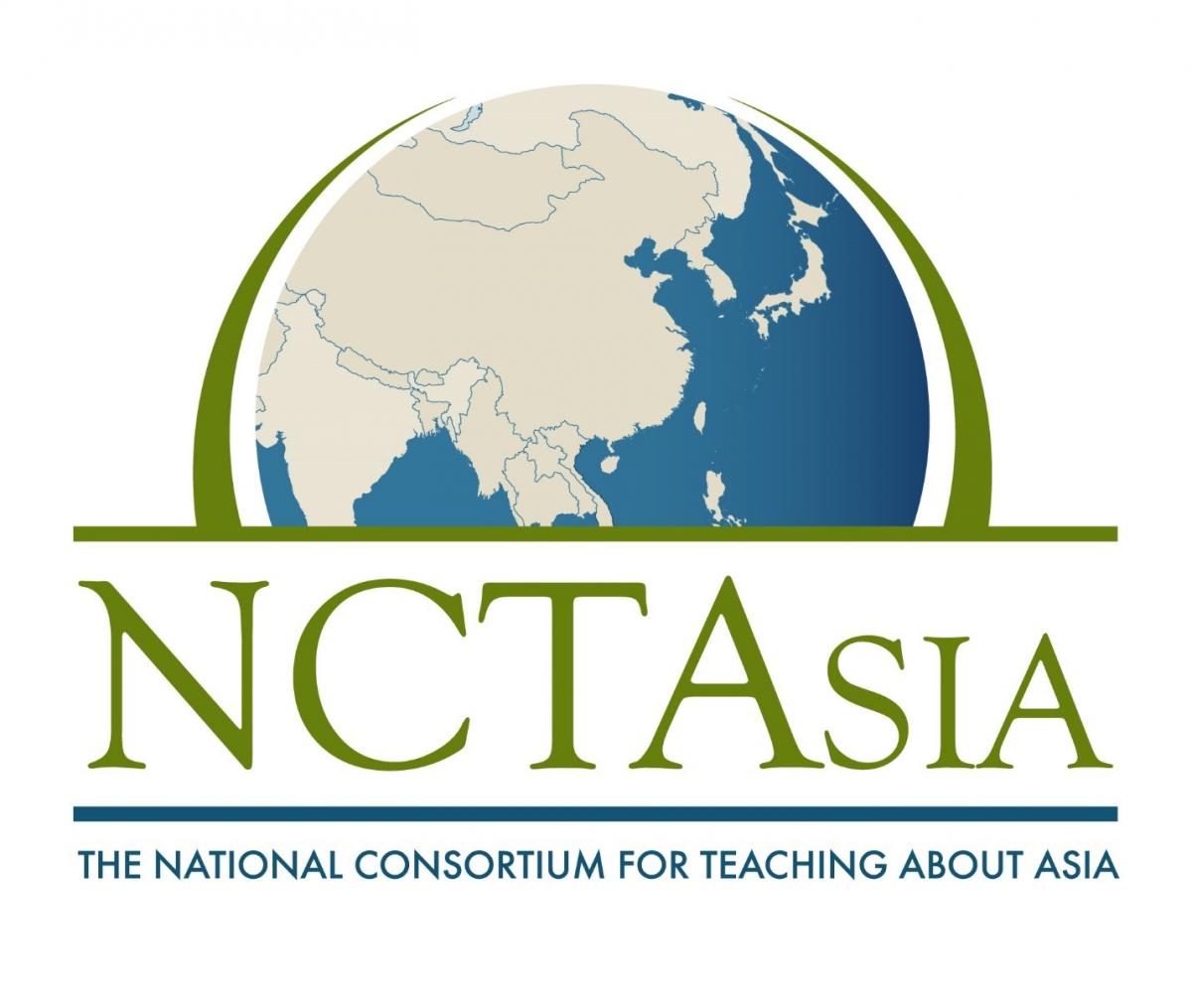Teaching The Global Water Crisis: A Multi-Disciplinary Mini-course for K-12 Educators

Teaching The Global Water Crisis was mini-course for K-12 educators thatl explored the global water crisis through attention to its geo-political, cultural, economic, and technological aspects, with particular attention to scholars and practitioners working within the environmental, political, and technological framework to address these challenges using a people-centered approach. Held over February 8, 10, and 11, Special attention was given to the case of East Asia.
Significant portions of the world’s population lack access to sufficient quantities of water or to water of adequate quality – standards enshrined in the UN’s Sustainable Development Goals (SDGs). This unfolding global water crisis is making life precarious for billions of people and will increasingly foment environmental conflict, spur transnational migration, strain ecological systems, and exacerbate existing inequalities around the planet.
This mini-course was hosted by the University of Pittsburgh's National Consortium for Teaching About Asia, and Global Studies Center, and is co-sponsored by the Asian Studies Center at the University of Pittsburgh.
Schedule of Program
Monday, February 8, 2021
Framing the Water Crisis: Ecological, Social, and Economic Perspectives on Water
with Dr. Alexandra Straub
Presentation Video
Using perspectives from environmental history, this talk emphasizes the relationships (economic, social, political, and ecological) between water and people and the complex ways these connections interact. A relational approach to water and society helps to frame global water problems in geographically and culturally distinct places. This talk also introduces the concept of modern water, or water divorced from its social context, and the hydrosocial cycle, a model that stresses the place of society in the water cycle.
Materials and Resources for Dr. Straub's Talk
Speaker Information
Alexandra Straub is a historian interested in the intersection of environment, technology, culture and science. Her current research explores the history of chemical and mechanical water softening and water conditioning with a focus on the tools and processes created to manipulate water as well as people’s attitudes towards and definitions of water. She received her PhD in history from Temple University in 2020 and is currently the research coordinator at the University of Pittsburgh’s World History Center.
Reclaiming the Commons: Transnational Movements for the Right to Water
with Caitlin Schroering, PhD Candidate
Presentation Video
The privatization of water—led by global financial institutions working in collusion with governments and corporations–is documented time and again not to lead to more people gaining access to safe water. In fact, the opposite is true, with privatization leading to higher rates and lower quality water. For the past century, the dominant focus of transnational organizing has been “from the West to the rest” and the frequent attention to movements in the United States has led to the neglect of transnational linkages between movements. This project challenges the idea of the “West to rest” pattern and hypothesizes that today more transnational communications and organizing are occurring around water and other basic rights, and Northern movements are engaging with and learning from the South and vice versa, with Southern activists playing a more prominent role than previous scholarship demonstrates.
Drawing on fieldwork conducted on two right to water movements that span three continents (North America, South America, and Africa), this presentation examines efforts to reclaim the commons of water. These efforts have been driven by grassroots movements demanding that democracy, transparency, and the human right to water are above corporate profit. This research advances understanding of large-scale social change by investigating how water policies are shaped through contention among social movements, national and local governments, and corporations. It also provides insight on how water activists in local struggles see themselves in relation to the larger national and global network of water activists.
Materials and Resources for Caitlin Schroering's Talk
Presentation Slides PDF - Reclaiming the Commons: Transnational Movements for the Right to Water
Speaker Information
Caitlin Schroering (she/her/hers) is a sixth year PhD candidate in sociology at the University of Pittsburgh. Her research interests include environmental sociology, transnational social movements, resource conflicts, political economy/world-system analysis, and feminist and decolonial research methodologies. Her dissertation, titled The Global Economy, Resource Conflicts, and Transnational Social Movements: Dimensions of Resistance to Water Privatization, examines how social movements are mobilizing around water rights. Based on extensive fieldwork with two movements fighting against water privatization, one in Brazil and one in the United States (supported by a Tinker Grant, Nationality Rooms Scholarship, and predoctoral Mellon Fellowship from the University of Pittsburgh), she shows how global communications and organizing are occurring around water and global North movements are engaging with and learning from the global South and vice versa, with global South movements playing a more prominent and innovative role than previous scholarship demonstrates.
Arc GIS Supplement with Dr. Thomas Mueller
Presentation Video
Materials and Resources for Dr. Mueller's Talk
Presentation Slides PDF - Water, Geography, and Maps Resources for Educators (Night 1)
Speaker Information
Dr. Tom Mueller has been a geography professor at California University of Pennsylvania since 1999. He received his degrees at Towson University (BS), University of Connecticut (MA) and University of Illinois (Ph.D.). He co-created and is the advisor for the Geography Major with a concentration in Geographic Information Technology. His interests include Geographic Information Systems (Computer Mapping), geography education and world regional geography. His goal is to apply spatial theory to the real world, particularly using GIS. It is essential that service learning be included in his geography courses. For example, students in his courses have completed real world projects for local police departments, Federal Emergency Management Agency, etc.. He has also taught numerous GIS workshops for members of the local community, professors at Cal U and other campuses and K – 12 community. He has built a successful geography research agenda through a variety of scholarly endeavors, including conference presentations, grants, technical reports, book reviews and publications in professional journals.
Wednesday, February 10, 2021
Water Resource Management on the Tibetan Plateau with Comparative References to the California Water System
with Dr. Roberta Soltz
Presentation Video
This presentation underscores water as a critical limiting resource for life on earth, and highlights its inequitable distribution as a key to understanding the ethical issues that always emerge when water management is discussed. Examples of such ethical issues that have plagued both the Western United States and Northwestern China are compared. Questions that students typically ask about these complex issues are identified and discussed.
Materials and Resources for Dr. Soltz's Talk
Speaker Information
Dr. Roberta Soltz earned her doctorate in biology from the University of California, Irvine in 1982. She served for three years as an Ecologist for the Los Angeles District of the U.S. Army Corps of Engineers. She then joined the Metropolitan Water District of Southern California where Dr. Soltz was appointed Director of Environmental Compliance. During her nearly 20-year career in flood control and water resource management, Dr. Soltz had a key role in negotiating critical environmental agreements for a variety of significant and precedent-setting projects including the Seven Oaks and Diamond Valley dams located in San Bernardino and Riverside counties, California. She earned the President’s Environmental and Conservation Challenge Award in 1992. In Washington, Dr. Soltz served on a number of governing boards including the Yakima Basin Storage Alliance, Kittitas County Board of Health Advisory Committee, Yakima Provincial Advisory Committee for the Okanogan and Wenatchee national forests and the Western Art Association.
Learning Progressions for How Students Make Sense of Water in Environmental Systems
with Dr. Kristin L. Gunckel, University of Arizona
Presentation Video
Global water issues are part of socio-ecological systems, whereby the distribution and quality of fresh water is influenced by both natural and human forces. Understanding water issues requires understanding how water moves through environmental systems, in addition to understanding the social, political, and economic systems that affect how water is used and moved. In order to teach about the global water crisis, teachers need to understand how students make sense of how water moves through environmental systems and how to build on student sense-making in the curriculum, through instruction, and during assessment. This talk will provide an overview of a learning progression for water in environmental systems and how this framework can support teachers in understanding student thinking. Examples of curriculum materials, instructional tools, and formative assessments built on this learning progression will also be provided.
Materials and Resources for Dr. Gunckel's Talk
Presentation Activity PDF - River Maps Assessment Activity
Speaker Information
Kristin L. Gunckel is a professor of science education at the University of Arizona. Her research focuses on developing empirically-grounded learning progressions for environmental science literacy, with an emphasis on water in environmental systems. She has been involved in numerous NSF-funded projects to develop learning progression-based curriculum materials, instructional tools, and formative assessments. In addition, Kristin has conducted teacher professional development for teaching about water and investigated teacher learning about learning progressions. Kristin received her PhD in Curriculum, Teaching, and Educational Policy from Michigan State University in 2008.
Arc GIS Supplement with Dr. Thomas Mueller
Presentation Video
Materials and Resources for Dr. Mueller's Talk
Presentation Slides PDF - Water, Geography, and Maps Resources for Educators (Night 2)
Speaker Information
Dr. Tom Mueller has been a geography professor at California University of Pennsylvania since 1999. He received his degrees at Towson University (BS), University of Connecticut (MA) and University of Illinois (Ph.D.). He co-created and is the advisor for the Geography Major with a concentration in Geographic Information Technology. His interests include Geographic Information Systems (Computer Mapping), geography education and world regional geography. His goal is to apply spatial theory to the real world, particularly using GIS. It is essential that service learning be included in his geography courses. For example, students in his courses have completed real world projects for local police departments, Federal Emergency Management Agency, etc.. He has also taught numerous GIS workshops for members of the local community, professors at Cal U and other campuses and K – 12 community. He has built a successful geography research agenda through a variety of scholarly endeavors, including conference presentations, grants, technical reports, book reviews and publications in professional journals.
Friday, February 12, 2021
Water, Energy, and Sustainability: A Look at the Mekong
with Dr. Brian Eyler
Presentation Video
This talk will provide an overview of water-energy-food nexus challenges in the Mekong Basin with a focus on hydropower impacts to downstream portions in Cambodia and Vietnam. It will highlight the robust ecological systems of the Tonle Sap Lake in Cambodia and the Mekong Delta in Vietnam and use visualizations and data to show how upstream dams are impacting these ecological systems from which 60 million people derive resources. Additionally, it will highlight some of the Stimson Center's work on improving transparency around dams and dam operations in the region and show some tools that your students can use to better understand what's happening in the Mekong.
Materials and Resources for Dr. Eyler's Talk
Presentation Slides PDF - Visualizing the Mighty Mekong

Speaker Information
Brian Eyler is an expert on transboundary issues in the Mekong region and specializes in China’s economic cooperation with Southeast Asia. He spent more than 15 years living and working in China and over the last two decades has conducted extensive research with stakeholders in the Mekong region. He is widely recognized as a leading voice on environmental, energy, and water security issues in the Mekong. Brian is co-lead on the Mekong Dam Monitor project and serves as chair of the Stimson Center’s War Legacy Working Group. His first book, Last Days of the Mighty Mekong, was published by Zed Books in 2019. Before coming to the Stimson Center, he served as the Director of the IES Kunming Center at Yunnan University and as a consultant to the UNDP Lancang-Mekong Economic Cooperation program in Kunming, Yunnan province. He holds a MA from the University of California, San Diego and a BA from Bucknell University.
Teaching about Modern Water Issues Teacher-led Curriculum Session
with Cindy McNulty
Presentation Video
Materials and Resources for Cindy McNulty's Talk
Presentation Slides PDF - Teaching about Modern Water Issues Teacher-led Curriculum Session
Speaker Information:
Ms. Cindy McNulty received both her B.S. Ed and Master of Liberal Studies from Duquesne University and has completed additional graduate work at both Duquesne and at Pitt. She has been awarded two National Endowment for the Humanities (NEH) Fellowships, three Fulbright-Hays Fellowships, two All-Star Educator awards and the World Affairs Council's George C. Oehmler Award. Ms. McNulty is active with the National Consortium for Teaching About Asia and works with the World Affairs Council of Pittsburgh on their Teacher Advisory Board and the Global Scholars selection committee. Ms. McNulty also served as Oakland Catholic's Director of the Global Competence Initiative.
This mini-course was hosted by the University of Pittsburgh's National Consortium for Teaching About Asia, and Global Studies Center, and is co-sponsored by the Asian Studies Center at the University of Pittsburgh.





